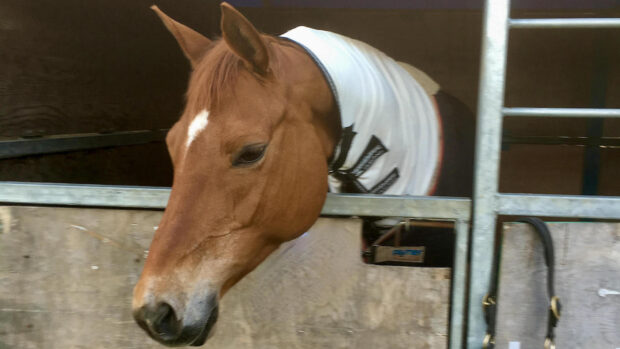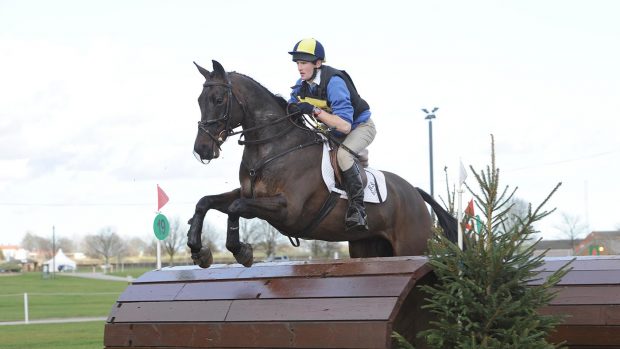A veterinary student has received funding to investigate whether dietary potassium levels could be the “missing link” in solving the root cause of headshaking.
Emily Westwood, who is studying at the Royal (Dick) School, has been awarded a bursary by World Horse Welfare to conduct a soil analysis comparing stable yards where there are headshakers to establishments without any cases.
An “extremely promising” preliminary study conducted last year revealed 70% of fields where there were headshakers had high or very high potassium levels.
Potassium is an electrolyte central to cellular and electrical function, forming part of the sodium-potassium pump that transmits nerve impulses.
Emily’s theory is that the more potassium there is in a cell, the more positively charged the cell will be, so it is more likely to react.
“In some horses there may be a misregulation that makes them susceptible to problems when there are high potassium levels in the diet,” she said.
Emily was prompted to analyse soil samples after her own horse started headshaking following a yard move from Lancashire to Cheshire and speculated that high potassium levels could be behind the debilitating condition.
“Once I moved my horse again, the problem stopped,” she said. “Potassium levels in Cheshire were double what they are here.”
Continued below…

Headshaking in horses: what you need to know about this distressing condition

‘It is visibly distressing for him’: coping with headshaking this summer
Blue skies and a burgeoning competition schedule mean most riders long for the summer, but for some owners it’s not

Subscribe to Horse & Hound magazine today – and enjoy unlimited website access all year round
Headshakers are thought to suffer from an as-yet unidentified pathology which causes stimuli such as pollen, rain, wind, bright sunlight or ridden work to provoke the characteristic vertical head-tossing.
While milder cases can be managed, some severely affected horses have to be put to sleep as the nerve pain in their faces can seriously impair their quality of life or make them dangerous to ride and handle.
Emily said that while vets are able to analyse the levels of potassium within the blood, they are not able to establish the levels within the cells — which carry a much higher concentration.
“Given the fact that there is 140mmol/l of potassium inside a cell, compared to only 4mmol/l outside (extracellular), we are only seeing the tip of the iceberg when we are blood-testing,” Emily said.
“It is near-impossible to test for intracellular potassium levels, however if we find that the soil these horses are grazed on, or the haylage cut from this pasture has excessive levels of potassium in comparison to pasture which hasn’t been fertilised etc, it may be possible to suggest that it is in fact the horses diet that may be contributing to this condition.
“Hopefully cutting the amount of potassium in the diet may prove enough to significantly reduce symptoms.”
Insulin and adrenalin are substances that can cause more potassium to be drawn into cells, and Emily believes modern management may be contributing to the increase in headshaking cases.
“We have fatter horses now [causing higher levels of insulin],” she said.
“The affect of adrenalin on potassium uptake might also explain why some horses only start to display headshaking symptoms 10 or 15 mins after they start work.”
Emily said the study would be taking place over the next 18 months, and she hopes the results will reinforce her preliminary findings.
“I am extremely excited about this study as research into the cases of idiopathic headshaking is extremely limited and I feel that any investigation into an explanation of this upsetting and frustrating condition is very much needed,” she said.
For all the latest news analysis, competition reports, interviews, features and much more, don’t miss Horse & Hound magazine, on sale every Thursday.




